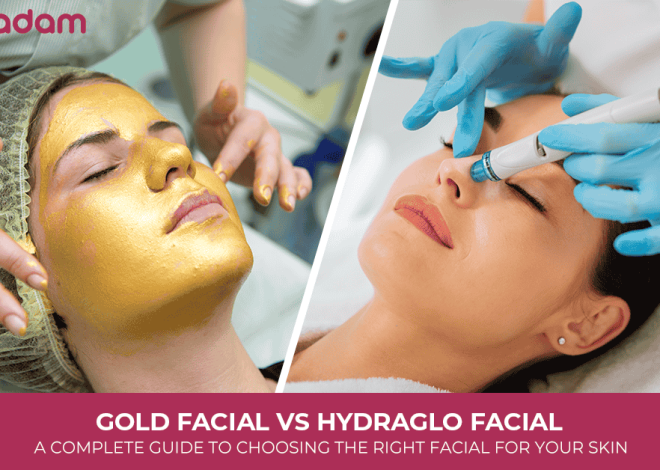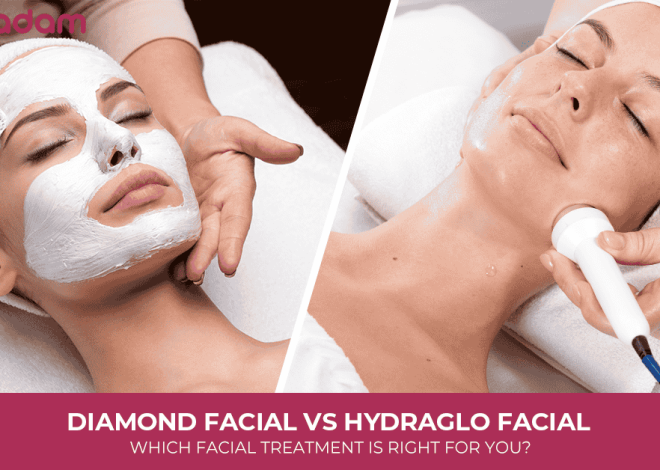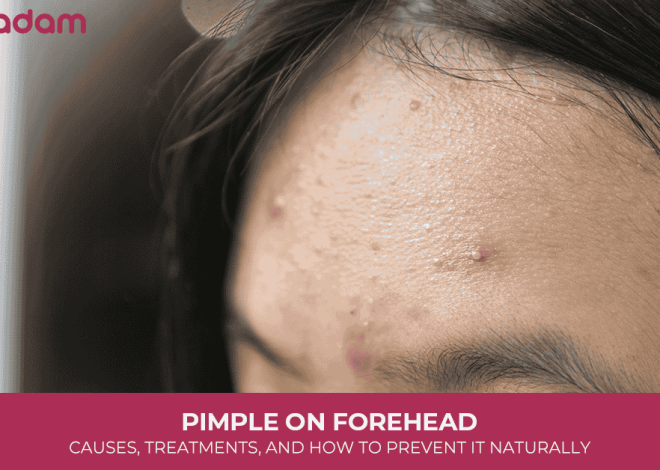
Top Apple Cider Vinegar Uses for Face: Improve Skin Health Naturally
When you hear about apple cider vinegar, what comes to mind? Obviously, it’s benefits and how it helps you maintain your health. But did you know that, apart from this, there are other uses for apple cider vinegar? One such use is for your face. It has been a popular and widely used ingredient in DIY home remedies for radiant skin. This blog focuses on the various apple cider vinegar uses for face and how it can help you achieve a natural glow while using only healthy, natural ingredients at home.

Table of Contents
Benefits of Apple Cider Vinegar on Face
There is much scientific research and evidence that prove the various benefits of ACV for face when used regularly. The presence of nutrients and probiotics in apple cider vinegar makes it an ideal solution for various skin-related issues. However, it is recommended to get a patch test first to ensure optimal results.
Here are some quite effective benefits of apple cider vinegar on face
1. Combats acne and pimples: Acne and pimples are some of the most common skin-related issues that many of us have faced or are currently facing. Applying apple cider vinegar on face is one of the most effective ways to overcome acne and pimple problems. The antibacterial, antiviral, and antifungal properties of apple cider vinegar make it a highly effective ingredient for combating acne and pimples.
2. Exfoliates gently: ACV comes with exfoliating properties due to its natural source of AHA. It can be used as an exfoliant for your skin to eliminate dead skin cells on the surface. With regular and gentle use, you can effortlessly reduce signs of aging and achieve youthful, glowing skin at home.
3. Balances your skin’s pH level: Apple cider vinegar is effective in restoring the natural pH balance of your skin. It not only fights external factors like pollution and bacteria but also helps keep your skin hydrated throughout various seasons, ensuring an optimal pH balance.
4. Works as a skin toner: Toner is an effective skincare product that helps maintain skin health by improving the absorption of other products, enhancing the skin’s natural glow, and tightening pores. ACV’s toner capabilities can serve the same purpose when used correctly.
5. Soothes sunburn: Apple cider vinegar is known for its anti-inflammatory properties, which can help soothe sunburned and inflamed skin. It may assist in balancing the skin’s pH levels, reducing redness, and easing discomfort caused by sun exposure.

4 Ways to Use Apple Cider Vinegar for Glowing Skin
Wondering how to apply apple cider vinegar on face? With apple cider vinegar, you can create many diy skincare recipes that are both effective and soothing. However, be cautious when using acv directly, as its high acetic acid content can cause irritation. It’s always recommended to dilute it with water or mix it with other ingredients before applying it to your face.
Some of the popular apple cider vinegar uses for face and its applications are listed below
1. ACV face wash
cleaning your face daily is essential to remove dirt, oil, debris, and pollutants that build up throughout the day. Using a face wash is one of the most effective ways to clear these impurities. Incorporating apple cider vinegar as a natural face wash can be highly effective. Mixing 1 tablespoon of apple cider vinegar with 1/4 cup of warm water creates a gentle cleanser that helps clean your skin without harsh chemicals. This dIY remedy can be a sustainable alternative to soaps and chemical-filled products that may not be ideal for long-term use.
2. ACV toner
Toners are well-known skincare products that help tighten and cleanse the skin while protecting it from impurities like bacteria, dust, and pollution. Apple cider vinegar offers similar properties, making it a popular ingredient for diy toners. To make one at home, mix 1 part apple cider vinegar with 2 parts water. Apply this mixture with a cotton pad after cleansing. If you experience any sensitivity or irritation, simply dilute it further by adding more water.
3. ACV face moisturiser
You might be surprised to know that apple cider vinegar can be used as a moisturizer booster. Mix 1 tablespoon of apple cider vinegar into your regular moisturizer. Apply it to your face like usual. This small addition can help promote softer, healthier, and more glowing skin.
4. ACV sheet mask
You can use apple cider vinegar to make a diy sheet mask that helps remove dirt, pollution, and promotes radiant, healthy skin. To make it, soak a dry sheet mask in a solution of 1 tablespoon apple cider vinegar mixed with a small amount of water. Let the sheet absorb the mixture completely, then apply it to your face for about 15 minutes. Remove it to reveal refreshed and glowing skin.

Things to be Considered When Using ACV on Face
Using apple cider vinegar (ACV) on your face can offer potential skin benefits like balancing pH levels, reducing acne-causing bacteria, and mildly exfoliating dead skin cells. However, ACV is highly acidic, and improper use, especially undiluted, can harm your skin.
Things to consider:
Dilution is key:
Never use undiluted ACV directly on your skin. It’s too acidic and can cause chemical burns or irritation. Always dilute it with water, 1 part ACV to 3–4 parts water. For very sensitive skin, increase the water ratio even more.
Patch test:
Before applying ACV to your face, test it on a small, discreet area (like your inner arm or jawline). Wait 24 hours to ensure there’s no redness, itching, or stinging. This step is critical for avoiding full-face reactions.
Sensitive skin:
If you have conditions like eczema, rosacea, broken skin, or a history of allergic reactions, ACV may not be suitable. The acetic acid in it can aggravate existing issues. You may need to skip ACV altogether or consult a dermatologist for safer alternatives.
Frequency:
Less is more. Start by using ACV no more than once every 3–4 days. Watch how your skin reacts before increasing use. Overuse can strip the skin’s natural oils and compromise its protective barrier.
Moisturize:
ACV can disrupt the skin’s moisture balance, leading to dryness or flaking. After applying it, always use a fragrance-free, hydrating moisturizer to restore balance and prevent irritation.
Sun protection:
ACV may make your skin more photosensitive. That means an increased risk of sunburn even with short sun exposure. Always apply a broad-spectrum SPF 30 (or higher) if you’re using ACV during the day or stepping outside.
Consult a dermatologist:
If you have pre-existing skin concerns, are on prescription skin medications, or are unsure about how your skin will react, professional advice is the safest route. Dermatologists can guide you on safe concentrations or suggest milder alternatives.
Overuse can cause problems:
Even though ACV has natural antibacterial and exfoliating properties, too much can damage the skin. Excessive or prolonged use may lead to burns, peeling, or hyperpigmentation. Use ACV sparingly and with care.
Can All Skin Types Use Apple Cider Vinegar on the Face? Here’s What You Need to Know
Apple cider vinegar (ACV) has gained popularity as a natural skincare remedy, especially for acne-prone skin. But is it safe for all skin types? Here’s a breakdown:
| Skin Type | Can Use ACV? | Benefits | Precautions |
| Oily & Acne-Prone | Yes | Reduces oil, unclogs pores, fights acne-causing bacteria | Dilute properly; avoid overuse to prevent irritation |
| Dry Skin | With Caution | May help with acne, but not ideal for dry skin | High risk of dryness and stinging; use a generous dilution and test first |
| Combination Skin | (Partially) | Helps with oily zones, minimizes breakouts | Apply only on oily or acne-prone areas; avoid dry patches |
| Normal Skin | (Occasionally) | Can act as a gentle toner or spot treatment | Use 2–3 times a week; overuse can disrupt skin’s natural balance |
| Sensitive Skin | No | Risk of irritation outweighs potential benefits | May cause burning or redness even when diluted; better to avoid or consult a dermatologist |

Tips for Safe Use of Apple Cider Vinegar (ACV):
- Dilute it first. Mix 1 part ACV with 3 parts water before using.
- Test it first. Try a small amount on your skin before applying it to your whole face.
- Don’t overuse. Use it just 2–3 times a week, not every day.
- Moisturize after. Apply a gentle moisturizer to keep your skin from drying out.
ACV can help with acne, but it doesn’t work the same for everyone. Use it carefully and adjust based on your skin’s needs.
Conclusion
Apple cider vinegar uses for face care are versatile and helpful. It can naturally treat acne, improve dull skin, and balance your skin’s pH level. Always dilute it and do a patch test before using it on your face to avoid irritation. For best results, use it in moderation and follow up with a gentle moisturizer. With careful use, apple cider vinegar can be a simple and natural way to get clear, healthy, and glowing skin.
FAQs
1. What are apple cider vinegar uses for face?
Apple cider vinegar (ACV) can balance skin pH, exfoliate dead cells, and reduce acne. It also tightens pores, fades dark spots, and helps tone the skin.
2. How do I apply apple cider vinegar on my face?
To apply apple cider vinegar on the face, dilute it with water (usually a 1:3 ratio) and apply it using a cotton pad. Let it sit for a few minutes before rinsing, and follow with a moisturizer.
3. Is ACV good for face?
Yes, ACV for the face is beneficial. It helps reduce acne, minimizes pores, and acts as a natural exfoliant due to its acidic properties. Just be sure to dilute it before application to avoid irritation.
4. Can we apply apple cider vinegar on face?
It’s not recommended to apply apple cider vinegar on the face directly without diluting it. The acidity of undiluted ACV may cause skin irritation or burns, so always dilute it with water before use.
5. How can apple cider vinegar help with dark spots on the face?
To apply apple cider vinegar on the face for dark spots, mix equal parts ACV and water. Use a cotton pad to apply it to the dark spots and leave it on for a few minutes before rinsing.
6. Is apple cider vinegar good for face?
Yes, apple cider vinegar is good for face when used properly. It helps balance skin tone, reduce acne, and improve skin texture. Diluting it is crucial to avoid irritation.
7. How often should I use apple cider vinegar on my face?
Applying apple cider vinegar on the face 2-3 times a week is ideal for most people. If you have sensitive skin, start with once a week and gradually increase usage based on how your skin reacts.
8. How should apple cider vinegar apply on face to avoid irritation?
Dilute apple cider vinegar with water (1:3 ratio) and apply it gently with a cotton pad. Rinse after 1-2 minutes, and follow up with a moisturizer.
9. How to use ACV for face when dark spots appear?
To use acv for dark spots on face, mix it with water and apply it directly to dark spots. This method may help lighten hyperpigmentation over time. Be consistent and ensure you moisturize afterward.
10. What are the overall benefits of ACV on the face?
The benefits of ACV on the face include improving skin tone, fighting acne-causing bacteria, exfoliating dead skin cells, and reducing the appearance of dark spots. It’s a natural way to enhance skin health when used properly.



